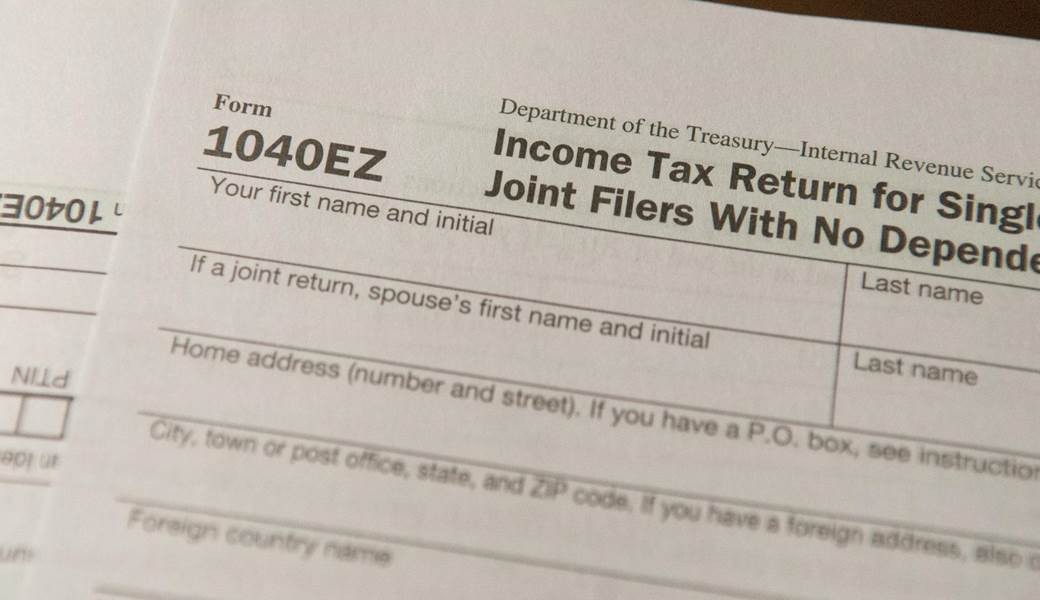Three Ways to Cut Your Tax Bill Before Retirement NBC News
Post on: 28 Апрель, 2015 No Comment

By Sharon Epperson
A lot can change in your financial life as you approach retirement—and taxes play a big role.
Many Americans who are nearing retirement have a narrow window to take advantage of unique tax opportunities. Here are three tax-cutting moves to make before you embark on your golden years.
Diversify your assets
If you’re close to retirement, do what you can to estimate how much money you’ll need your investments to generate in retirement. From there, you can reallocate assets to achieve that potential amount of retirement income. You’ll not only want to determine what types of vehicles to invest in, but also where to put those investments—whether in taxable or tax-advantaged accounts like traditional and Roth 401(k)s and IRAs.
Try to max out contributions into pretax retirement plans like a 401(k) or 403(b). In 2015, the limits are a little higher at $18,000, or $24,000 for contributors over age 50.
Defer your income
Most likely, you’ll be in a lower tax bracket once you reach retirement. As you get closer to retirement, defer any income you can. This may include putting off the sale of your home, withdrawals from your IRA or annuity cash-outs until you’re actually retired and in a lower tax bracket.
You can save on your taxes by waiting until you’re in a post-retirement low tax bracket, said Elda Di Re, a partner at Ernst & Young. The savings from such deferrals can potentially add up to thousands of dollars.
Tax benefits now, charitable giving later
Think about increasing your charitable contributions. Donating assets that have appreciated over time can help pre-retirees avoid capital-gains taxes while also helping a worthy cause. We hear very consistently that it’s an important element of their financial planning, said Fidelity Investments’ Kathleen Murphy, who oversees $1.7 trillion in assets as president of the firm’s personal investing business.
It’s also possible to increase the tax benefits today and delay the actual gift until a later time by making a charitable contribution to what’s known as a donor-advised fund. Begin by projecting how much you’d like to give over the course of 10 years or longer, then transfer that amount into the fund, which will allow you to get an immediate tax deduction on the donation today, when it’s most advantageous (since you’re likely in a higher tax bracket).
From there, you can make decisions on how, when and where you want your donations to be distributed.
First published March 13 2015, 5:02 AM
Sharon Epperson
As CNBC’s personal finance correspondent and senior commodities correspondent, Sharon Epperson reports on personal finance for the network and also covers the global energy, metals and commodities markets from the floor of the New York Mercantile Exchange.
In addition to reporting for CNBC and CNBC.com, Epperson is a regular contributor on NBC’s Today and Today.comand appears frequently on NBC Nightly News, MSNBC and NBC affiliates nationwide. She also frequently reports for Public Television’s Nightly Business Report, which is now produced by CNBC.
Her book, The Big Payoff: 8 Steps Couples Can Take to Make the Most of Their Money—and Live Richly Ever After, was a finalist for the Books for a Better Life Awards, honoring works that have changed the lives of millions. She also was a contributing writer for The Experts’ Guide to Doing Things Faster.
Epperson’s personal finance expertise has been featured in numerous publications, including USA Weekend, The Wall Street Journal, The Washington Post, The Boston Globe, Self, Essence, Ebony and Time, where she had covered business, culture, social issues and health as a correspondent prior to joining CNBC.
She is committed to improving financial literacy, particularly in underserved communities. She has been invited to the White House to speak about financial literacy and to moderate a public meeting of the President’s Advisory Council on Financial Capability at the U.S. Treasury Department. She also speaks frequently at conferences and events for local and national organizations, colleges and universities about many facets of personal finance.
Epperson has received the Vanguard Award for her distinguished career in business and personal finance reporting from the National Urban League Guild, the All-Star Award from the Association of Women in Communications and the Gracie Allen Award from the American Women in Radio and Television for a series of reports on female CEOs. She also has won awards from the New York Festivals, the New York Association of Black Journalists and the National Association of Black Journalists.
An adjunct professor at Columbia University’s School of International Public Affairs for more than a decade, Epperson enjoys teaching the importance of budgeting and building long-term savings as part of her course on professional development for graduate students interested in media careers.
Epperson received her bachelor’s in sociology and government from Harvard University, and a master’s of international affairs degree from Columbia University. A Pittsburgh native, Epperson lives with her husband and two children in Westchester County, N.Y.














